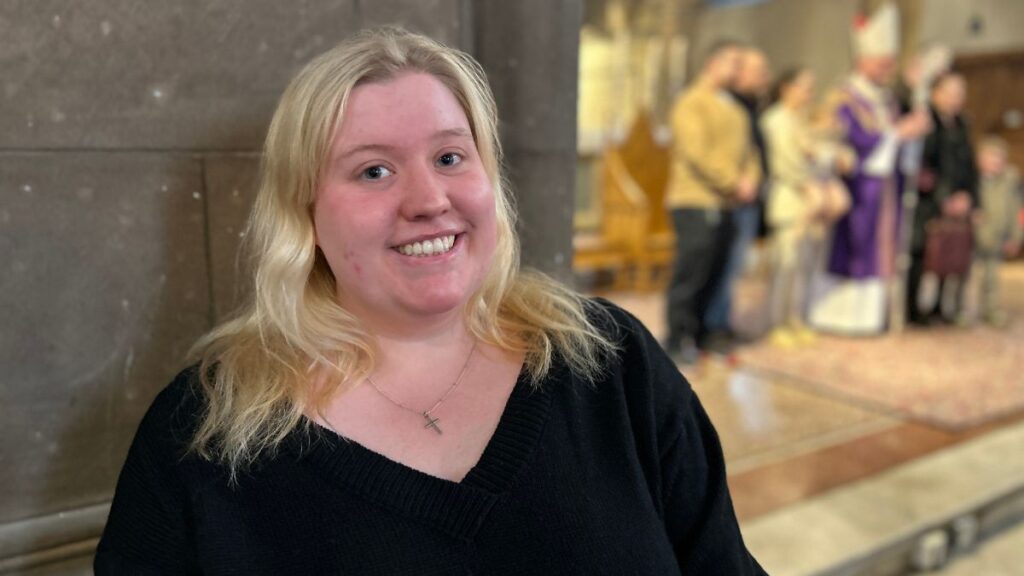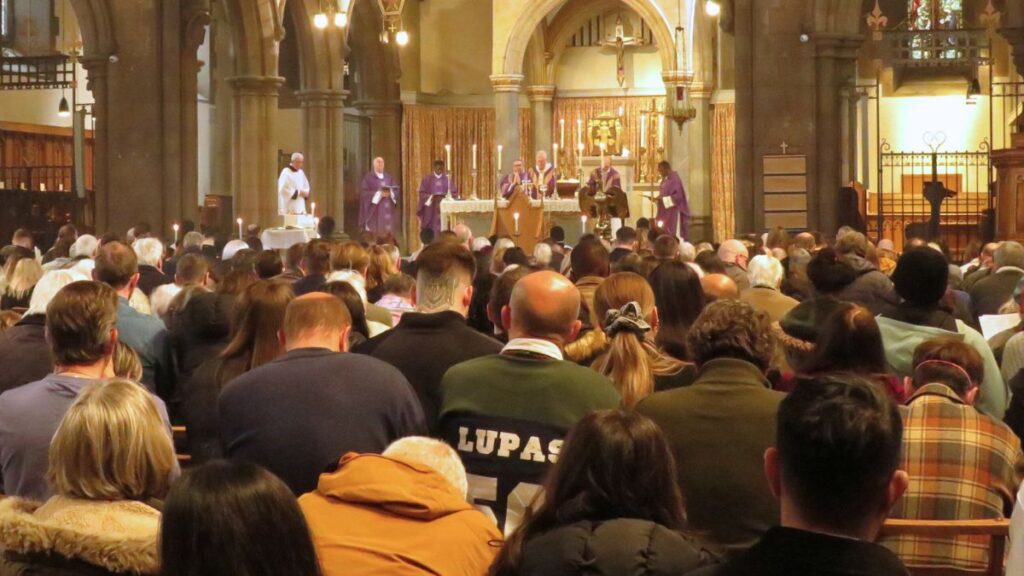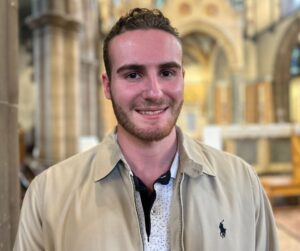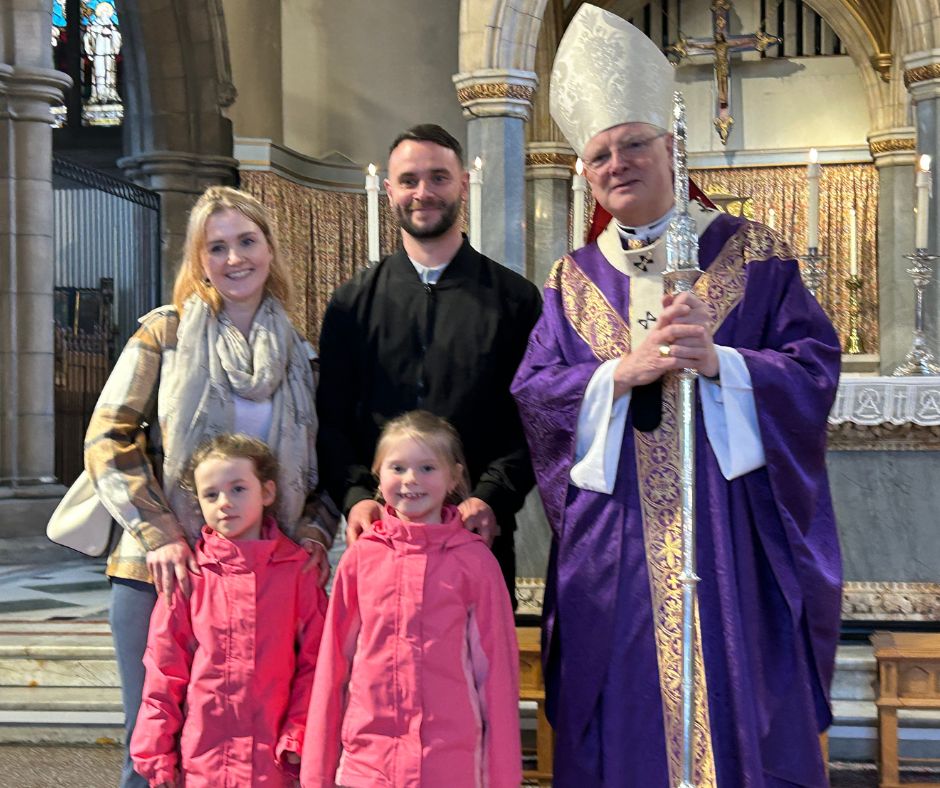Becoming Catholic: 'I find peace in the Church'
When Lindsay Sweeting was 14 she was seriously ill in hospital.
Doctors could not find out what was wrong with her; they had removed her appendix but she remained sick.
Lindsay, (below) a parishioner at Sacred Heart in Penicuik, said: "I had lost my faith a little but prayed to God one night and then somebody visited me in the hospital.

"I can't tell who did, but this person told me something was wrong and I had to get my blood taken.
"When I asked the doctor to take my blood again, they checked one more time and that's when they found sepsis.
"I was cured within four weeks. So if I never had that I probably would have died.
"They had no records of anyone visiting me that night. "
Becoming Catholic
Lindsay is just one of the many people who will be received into the Catholic Church at Easter.
On Sunday she attended St Mary's Cathedral for the Rite of Election.

It is the final stage for those preparing to be received into the Catholic Church.
At the Mass, which was celebrated by Archbishop Cushley, 68 catechumens and 44 candidates expressed their sincere and earnest desire to take full part in the Church's sacramental life.
They were joined by their godparents and sponsors, as well as the lay catechists who have been teaching them the Catholic Faith.
Catechumens are those who will be baptised, while Candidates are those who have been baptised already (in a Christian denomination such as the Church of Scotland for example) and will come into full communion with the Catholic Church.
Lindsay added: "My dad went through the RCIA (Rite of Christian Initiation of Adults) process and he led me towards this.
"Every time, I find peace in the Church."
Grant Machray-Smith, (below) who attends St Mary's Cathedral, said: "I was reading Letters from a Stoic by Seneca (philosopher of Ancient Rome) and I felt there was a lot of Christian themes in it.

"So I then decided to read the Bible and my mate who is a Catholic asked me to go to Mass with him.
"It was Christmas 2023 and it was at that moment that I completely fell in love with the liturgy and I started to go every Sunday.
"It didn't take long before I asked to join an RCIA group. I love the liturgy, it's so beautiful, especially the Latin Mass - it's so inspiring."
Delighted to be here
 Graham Couper, of St Mary's in Jedburgh (left), said: "I wanted to join the Catholic Church for about 30 years and I felt now was the right time in my life to join so I'm delighted to be here today".
Graham Couper, of St Mary's in Jedburgh (left), said: "I wanted to join the Catholic Church for about 30 years and I felt now was the right time in my life to join so I'm delighted to be here today".
Alan Boyd, (below) who attends St Alexander's in Denny, was at the Rite of Election with wife Elizabeth and their two children. He said: "It's important to me at this time in my life to become part of the Church that Christ built himself.

"I was already baptised in the Church of Scotland and I feel that wasn't enough."
Alexandra Stefan, (below) of St John's in Portobello, is from Romania and was a member of the Romanian Orthodox Church.
She has been living in Edinburgh for 13 years and said: "I was attracted to the Catholic Community." 